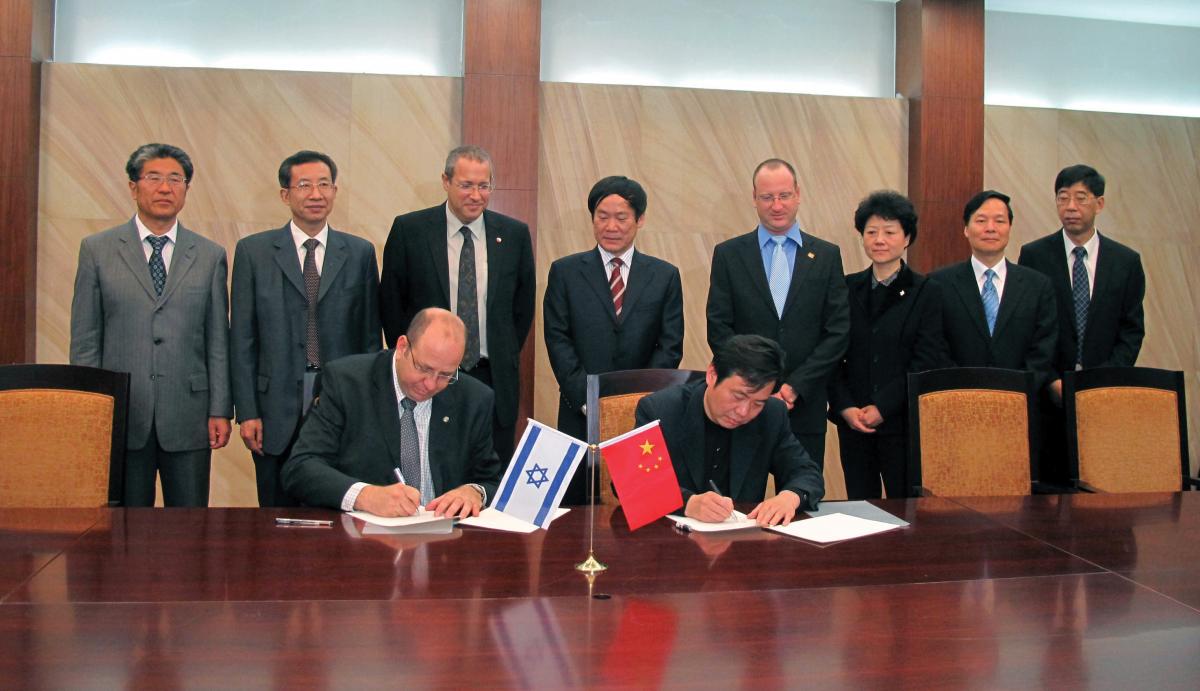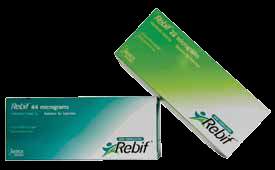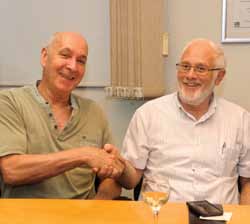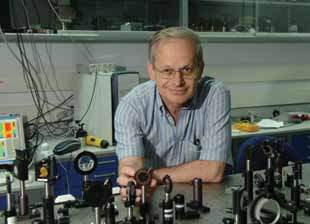January 2012: Yeda entered into a license agreement with Adobe Systems Incorporated related to a bidirectional similarity measure to summarize visual data.
The method developed by
Prof. Michal Irani and her group is a technique for reducing still images or video while maintaining the coherence of the original. Other applications may include completing missing parts in images/videos, creating montages, photo reshuffling, automatic cropping, image synthesis and image morphing.
Rebif® Approved for Early Stages of Multiple Sclerosis
January 2012: Rebif® (interferon beta a-1), a treatment developed at the Institute by Prof. Michel Revel, was approved by the European Union for the treatment of patients in the very early stages of multiple sclerosis (MS). Rebif®, produced and marketed worldwide by Merck-Serono, is currently used to treat symptomatic stages of MS. It can now be prescribed for early-stage MS in all 27 European Union countries.
Stem Cell Identification Technique Moves Forward
March 2012: Biotech company Procognia announced that a feasibility study directed by the Institute’s
Prof. Dov Zipori was successfully completed. This research investigated the use of sugars on bone marrow stem cells (glycosylation structures) to identify the best cells for transplantation. Procognia has licensed the sole rights to develop and market this technology from Yeda and, together with Yeda, has applied for a patent.
Cooperation Agreement with China
March 2012: A cooperation agreement was signed between Yeda and the Center of International Technology Transfer of Jaingsu Province. Also in March, Yeda CEO Amir Naiberg and other Yeda team members participated in the Beijing International Technology Transfer Conference 2012, and, in May, Yeda’s general counsel Adv. Gil Granot Mayer made a presentation at the Third China IP Forum. Several Chinese companies have now entered into discussions with Yeda concerning future cooperation.

Weizmann Solar Technology Goes to Australia
June 2012: NewCO2Fuels Ltd., a subsidiary of the Australian company Greenearth Energy Ltd., acquired an exclusive worldwide license for Weizmann Institute solar technology from Yeda. The Australian company hopes to use the technology to turn the burning of brown coal, which today releases large amounts of carbon dioxide, into an environmentally friendly process.
Agreement to Develop New Microscope Technique
July 2012: Intelligent Imaging Innovations (3i), a US-based firm, signed an agreement with Yeda to develop a new type of microscope. The new technique, invented by
Prof. Yaron Silberberg and
Dr. Dan Oron, is called temporal focusing microscopy. Based on light pulses that shorten when the beam reaches the desired plane, a single exposure can illuminate an entire brain area.




